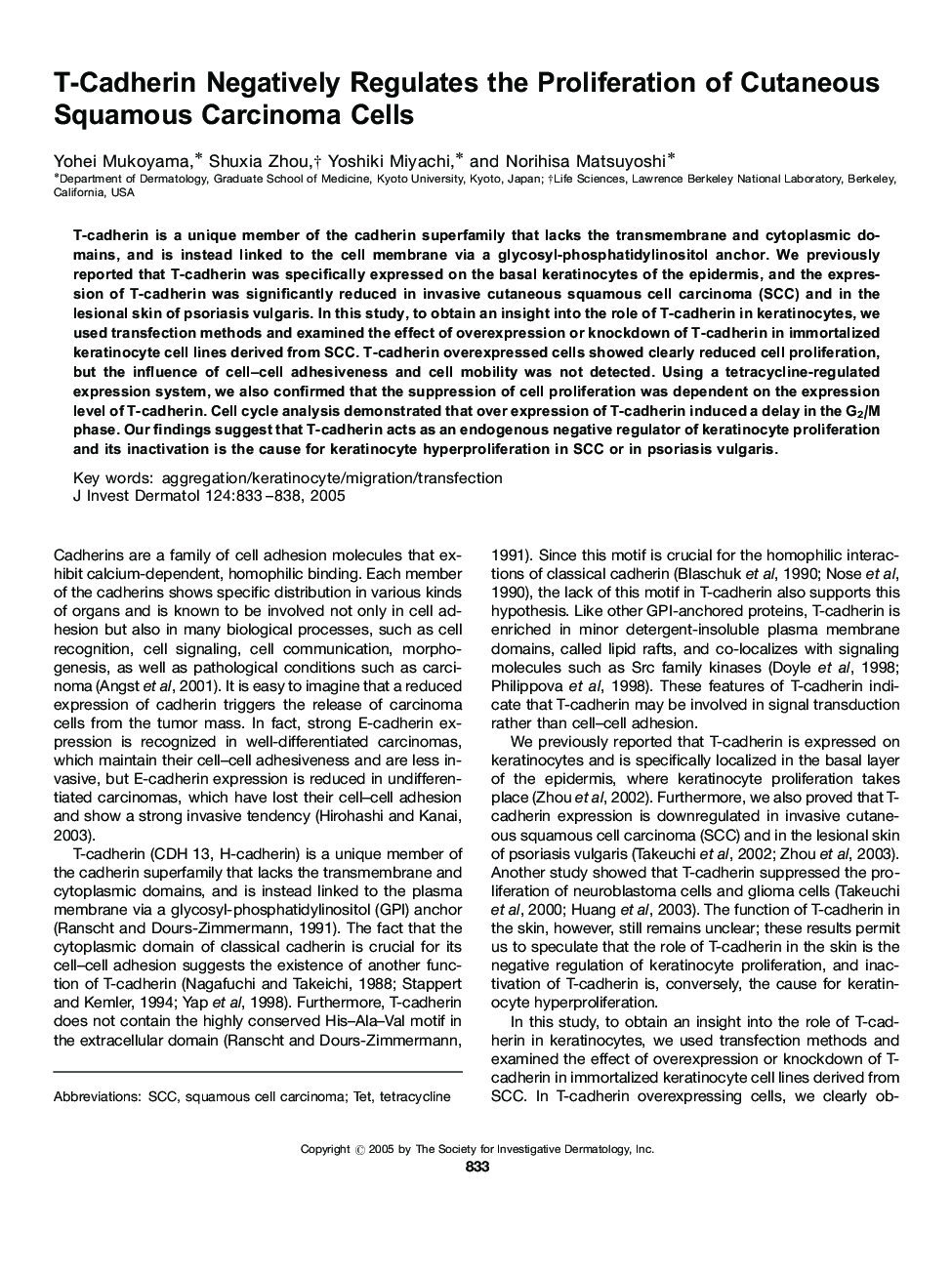| Article ID | Journal | Published Year | Pages | File Type |
|---|---|---|---|---|
| 9230355 | Journal of Investigative Dermatology | 2005 | 6 Pages |
Abstract
T-cadherin is a unique member of the cadherin superfamily that lacks the transmembrane and cytoplasmic domains, and is instead linked to the cell membrane via a glycosyl-phosphatidylinositol anchor. We previously reported that T-cadherin was specifically expressed on the basal keratinocytes of the epidermis, and the expression of T-cadherin was significantly reduced in invasive cutaneous squamous cell carcinoma (SCC) and in the lesional skin of psoriasis vulgaris. In this study, to obtain an insight into the role of T-cadherin in keratinocytes, we used transfection methods and examined the effect of overexpression or knockdown of T-cadherin in immortalized keratinocyte cell lines derived from SCC. T-cadherin overexpressed cells showed clearly reduced cell proliferation, but the influence of cell-cell adhesiveness and cell mobility was not detected. Using a tetracycline-regulated expression system, we also confirmed that the suppression of cell proliferation was dependent on the expression level of T-cadherin. Cell cycle analysis demonstrated that over expression of T-cadherin induced a delay in the G2/M phase. Our findings suggest that T-cadherin acts as an endogenous negative regulator of keratinocyte proliferation and its inactivation is the cause for keratinocyte hyperproliferation in SCC or in psoriasis vulgaris.
Related Topics
Health Sciences
Medicine and Dentistry
Dermatology
Authors
Yohei Mukoyama, Shuxia Zhou, Yoshiki Miyachi, Norihisa Matsuyoshi,
